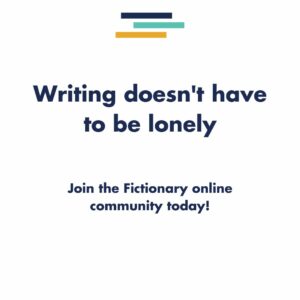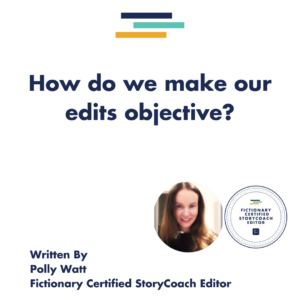Why Objectivity is Important in Editing
Objectivity, or the Editing Holy Grail
An objective edit, free of the whims and fancies of personal opinion, is the gold standard of editing, for which all editors strive. Isn’t it? To understand why being objective as an editor is important, let’s examine how subjectivity harms an edit.

Why should editors fight their subjective reactions?
A reasonable question. Books are written for readers, who – as any search through goodreads.com demonstrates – generally react to books subjectively. We may then think: Other readers will surely share my views. Novels are an art form, a matter of taste, which can’t ever appeal equally to everyone. But if I help a writer create something I love, then other readers may react similarly.
This is a seductive argument. Unfortunately, giving free rein to our own opinions, without being an objective editor, is a risky way to edit stories.
Why so?
Writers often struggle to interpret subjective feedback, and may lose trust in their editor as a result.
For example, take editorial advice which says: Try making your protagonist more likeable.
What does the writer do with this? The writer either:
- a) found their protagonist likeable and therefore now feels confused, or
- b) didn’t intend for their protagonist to be likeable and now suspects…
… the editor misunderstood their story. Also possible is:
- c) the writer was seeking actionable editorial advice on how to make the greatest number of people react positively to their protagonist, which this comment alone hasn’t provided, because the editor isn’t being objective enough.
Stating our subjective opinion is easy. What’s difficult, is standing back from our personal opinions and assessing them as carefully and critically as we should be assessing the book in front of us.

So, what does being objective as an editor mean?
The key when giving objective advice isn’t to ignore our reader reaction entirely, but to analyse what specifically about the story made us formulate that reaction.
In the above example, the important point isn’t that the editor didn’t like the protagonist. The important point is why. That’s what the writer needs to know.
Was it, perhaps, because the editor found the protagonist passive? If so, then there’s potentially an objective solution. Perhaps the protagonist lacked a clear story goal, or clear scene goals, or failed to strive for these goals.
The editor could instead say: When a character pursues clearly-defined goals, this allows the reader to root for the character and connect with them, even if the reader disagrees with these goals. In Scenes X, Y and Z, I‘ve marked where your protagonist failed to pursue their goal proactively. Take a look at these scene-notes; consider whether you can re-structure these scenes around your protagonist’s proactive pursuit of a plot-related scene goal.
But what if the editor’s dislike of the protagonist was founded on something subjective at its core, such as opinions and actions the editor finds objectionable?
If your author were seeking to write, for example, a paedophile with whom the reader feels uncomfortably connected (as in Nabakov’s Lolita), then advising them to make their character more likeable may be counter-productive to their aims. Providing specific advice on creating reader connection through goals, backstory and internal dialogue, however, may be constructive.
Asking your author directly about their intentions demonstrates your respect for their artistic vision. If you discover your author’s intentions are objectionable to you, you’re probably the wrong editor for them. Better to discover this early on, and end the relationship. Lolita isn’t for everyone.
Objectivity allows you, as an editor, to assess a book for what it seeks to be, rather than what you, as an individual, wish it were.
For more on creating trust between author and editor, see Kristina Stanley’s blog here; for how to give feedback that motivates a writer, here; and for how to allow your individual editor’s voice and artistry to shine whilst providing objective feedback, here.
But, come on – do objectively great stories even exist?
We all have different tastes, but some books seem to transcend personal opinion. At the time of writing this, on Goodreads.com, Pride and Prejudice had 3,775,473 reviews averaging 4.3 stars; Harry Potter and the Philosopher’s Stone, 8,900,589 at 4.3 stars. Most Goodreads reviewers, therefore, had strongly positive reactions to these books.
By analysing stories against objective story elements – elements existing in all of the most time-honoured and successful stories – we give our writers the best chance of finding this ‘story magic’ and using it within their own artistic vision. These elements provide a structural framework within which an editor can objectively assess what is and isn’t working in a story. Shane Millar writes in more detail about these elements here. Editors can use these elements as tools to chip away at the rock of their subjective reaction, revealing the gold which glitters underneath –an objective explanation. Objectivity is the magic dust of editing; finding it can help stories shine.
Post Written by Polly Watt

A former refugee lawyer in the UK, Polly Watt honed her skills working on cases where careful editing often really was a matter of life and death.
As a Fictionary StoryCoach Editor, she will apply the same care and attention to detail to your structural story edit. She’s passionate about stories and loves working on all different types of literary genres.
One last thought…
Do you know about the free Fictionary community? We’re connecting writers and editors who speak the same language of story editing.
You’re most welcome to join.
- Connect with other writers and editors
- Get your editing questions answered by Fictionary Certified StoryCoach editors
- Access free, live editing classes presented by editing experts
- Learn about all things Fictionary: product updates, videos, webinars, best practices



